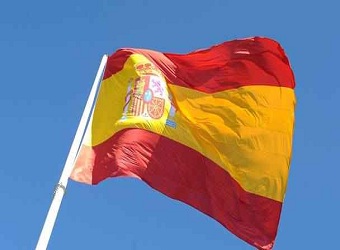Authorities in Madrid have moved to stop an independence referendum in the Spanish region of Catalonia this weekend, with reports saying that police have sealed off polling stations and raided a telecommunications centre.
The national government has said police have secured 1,300 of 2,315 schools in Catalonia which had been designated as voting stations, according to Reuters. This comes after 163 schools were occupied by families to prevent their closure.
Police will also remove people from polling stations on Sunday, the news agency reported citing a government source. The source did not give details on how this would be carried out but said it would be up to the police as to how they remove people. Volunteers staffing the centers will be liable for fines of up to 300,000 euros ($354,360), according to the source.
Pro-independence lawmakers hope the northeastern region will gain complete political and economic autonomy from Spain despite the referendum putting Catalonia in open defiance of central authorities in Madrid. Catalan leader Carles Puigdemont told Reuters on Friday the vote would go ahead, without any last minute compromises.
Earlier on Saturday, Spanish police raided the Catalan government’s telecommunications and information technology center, the La Vanguardia newspaper reported, citing RAC1 radio station. Spain’s Interior Ministry could not confirm the raid, according to Reuters.
Catalonia has talked of separation from Spain since the founding of Estat Català – a political movement which began in 1922 – and throughout the 36-year dictatorship of Franco, however, the resurgence of the pro-secession movement over the past few years is due primarily to Spain’s economic woes, a 2010 constitutional court decision to lessen Catalonia’s sovereignty, and a distrust of Madrid or the centralized Spanish government.
Although most polls show that the majority of Catalans favor remaining a part of Spain, there is anger at the Spanish government for not allowing an official vote on the matter and for the perceived suppression of a democratic process — a moot point in a country that experienced military dictatorship for much of the 20th century.
It’s uncertain how organized and widespread any ballot will turn out to be on Sunday — and analysts are split over whether anything will take place — but it’s seen as a constitutional crisis for the Spanish government that is set to rumble on.
“Regardless of turnout or the result this weekend, the Catalan referendum is becoming yet another PR disaster for the political establishment in Spain,” Stephen Gallo, European head of FX strategy at BMO Financial Group, said in a note Wednesday.
“Although the Catalan referendum is considered unconstitutional, the defensive posture adopted by Madrid is only adding more fuel to the fire.”
Source: Reuters & CNBC


